
East Asian Languages and Literatures Department

The Department of East Asian Languages and Literature (EALL) is committed to the mission of liberal arts education in an increasingly diverse and global world, both for students pursuing the major and for non-majors interested in East Asian languages and literatures. It offers a full four-year program of language courses in both Chinese and Japanese, as well as literature and culture courses in English.
The Department of East Asian Languages and Literature (EALL) is committed to the mission of liberal arts education in an increasingly diverse and global world, both for students pursuing the major and for non-majors interested in East Asian languages and literatures. It offers a full four-year program of language courses in both Chinese and Japanese, as well as literature and culture courses in English.
The language courses are designed to develop advanced communication skills in Chinese and Japanese through intensive language training and to provide a foundation for understanding the cultural traditions of China and Japan. The literature and culture courses aim to foster an awareness and understanding of East Asian cultures through an Interdisciplinary approach, introducing historical background, social, philosophical, political issues, and other cultural concerns relevant and necessary to the understanding of the literary and other cultural texts. The department’s curricula provide solid disciplinary training, preparing students to meet the challenges in future graduate studies or in career development.
The department stresses close interactions between students and the faculty. Diverse East Asian cultural activities, such as A Taste of Asia and the Lunar New Year Celebration, give students opportunities to practice their language skills outside the classroom in a relaxed social setting. The department also offers spring term study abroad programs to China and Japan, where students are not only engaged in immersive language learning, but also in studying East Asian cultures through first-hand experience. Furthermore, EALL majors are encouraged to spend a summer, a semester, or a year studying abroad in China or Japan to enhance their proficiency in language and to broaden their knowledge of the East Asian cultures.
Thanks to our increasing alumni support, each year the department awards The Andrew M. Hemm Prize of Excellence to recognize outstanding student performance in the study of Chinese and Japanese. The prizes are given annually to two students who maintain the highest GPA during their first two years of Chinese and Japanese studies, and to two seniors for their outstanding work over the past four years in Chinese and Japanese respectively. In addition, the department also offers The James Boardman Family Study Abroad Scholarships annually to students who travel to East Asia for study abroad and internship opportunities.
Department Info
-
East Asian Languages and Literatures
Ruscio Center for Global Learning
Washington and Lee University
Lexington, Virginia 24450

W&L’s Chelsea Adotey ’24 Awarded Slot in Highly Regarded JET Program
Adotey will start her role in the Japanese Exchange and Teaching (JET) Program in early August 2024.

W&L’s Lillie Taylor ’24 Selected for Prestigious JET Program
Taylor will work as an assistant language teacher in Japan before pursuing her teaching certification.

W&L’s Benton Copeland ’24 Awarded Fulbright to Taiwan
Copeland has been awarded a Fulbright English Teaching Assistantship to teach English in Taiwan.
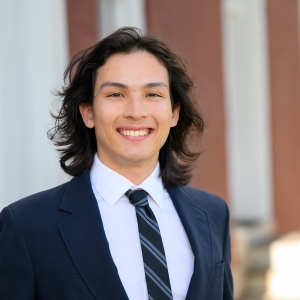
W&L’s Thomas Leggett ’25 Selected for Fulbright to Taiwan
Leggett received a Fulbright English Teaching Assistantship to teach English in Taiwan and plans to pursue a career in civil engineering.
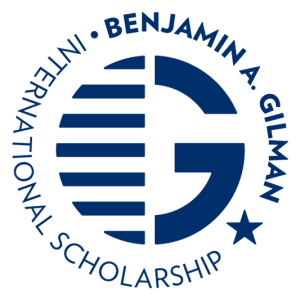
Eight W&L Students Awarded Gilman Scholarships to Study Abroad
This round of recipients marks a record-setting Gilman Scholar cohort for W&L.

Thomas enjoys the balance between athletics, academics and making lifelong connections with fellow students.
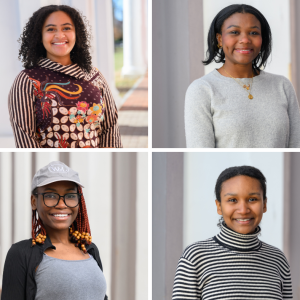
Four W&L Students to Study Abroad with Critical Language Scholarship
The Critical Language Scholarship Program funds a summer of overseas language and cultural immersion.

Chris Elford to Present Nobel Prize Symposium Talk
The assistant professor of Chinese will discuss the Nobel Prize in literature presented to Korean writer Han Kang on Jan. 14.
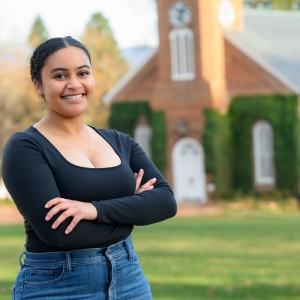
Berwick embraces other cultures through her Japanese major and performing classical Indonesian dances.

W&L Alumna Maria Kisker ’21 Selected for Fulbright to Taiwan
Kisker will pursue a master’s degree in political economy at National Tsing Hua University.

W&L Outcomes: Lillie Taylor ’24
Taylor is moving to Niigata Prefecture, Japan, to work as an assistant language teacher for the JET Program.
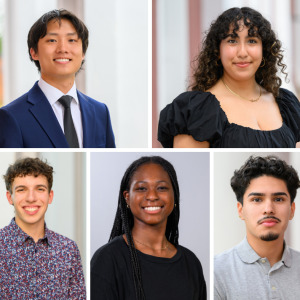
Five W&L Students Awarded Gilman Scholarships to Study Abroad
The Gilman Scholarship Program offers awards of up to $5,000 to U.S. undergraduate students who are Pell Grant recipients.

W&L’s Chelsea Adotey ’24 Awarded Slot in Highly Regarded JET Program
Adotey will start her role in the Japanese Exchange and Teaching (JET) Program in early August 2024.

W&L’s Lillie Taylor ’24 Selected for Prestigious JET Program
Taylor will work as an assistant language teacher in Japan before pursuing her teaching certification.

W&L’s Benton Copeland ’24 Awarded Fulbright to Taiwan
Copeland has been awarded a Fulbright English Teaching Assistantship to teach English in Taiwan.

W&L’s Thomas Leggett ’25 Selected for Fulbright to Taiwan
Leggett received a Fulbright English Teaching Assistantship to teach English in Taiwan and plans to pursue a career in civil engineering.

Eight W&L Students Awarded Gilman Scholarships to Study Abroad
This round of recipients marks a record-setting Gilman Scholar cohort for W&L.

Thomas enjoys the balance between athletics, academics and making lifelong connections with fellow students.

Four W&L Students to Study Abroad with Critical Language Scholarship
The Critical Language Scholarship Program funds a summer of overseas language and cultural immersion.

Chris Elford to Present Nobel Prize Symposium Talk
The assistant professor of Chinese will discuss the Nobel Prize in literature presented to Korean writer Han Kang on Jan. 14.

Berwick embraces other cultures through her Japanese major and performing classical Indonesian dances.

W&L Alumna Maria Kisker ’21 Selected for Fulbright to Taiwan
Kisker will pursue a master’s degree in political economy at National Tsing Hua University.

W&L Outcomes: Lillie Taylor ’24
Taylor is moving to Niigata Prefecture, Japan, to work as an assistant language teacher for the JET Program.

Five W&L Students Awarded Gilman Scholarships to Study Abroad
The Gilman Scholarship Program offers awards of up to $5,000 to U.S. undergraduate students who are Pell Grant recipients.

W&L’s Chelsea Adotey ’24 Awarded Slot in Highly Regarded JET Program
Adotey will start her role in the Japanese Exchange and Teaching (JET) Program in early August 2024.

W&L’s Lillie Taylor ’24 Selected for Prestigious JET Program
Taylor will work as an assistant language teacher in Japan before pursuing her teaching certification.

W&L’s Benton Copeland ’24 Awarded Fulbright to Taiwan
Copeland has been awarded a Fulbright English Teaching Assistantship to teach English in Taiwan.
2024 Lunar New Year, Year of the Dragon








































